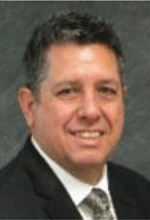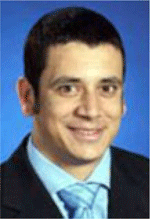From the Beetaloo to West Texas: similarities, differences and lessons learned from water management in coal seam and shale field developments on either side of the Pacific
Brian D. Webster A , Holly Churman B , Chris Benjamin B , Julian Long C and Brett M. Goebel C DA GHD, PO Box 351, Darwin, NT 0801, Australia.
B GHD, 6320 Rothway St, Suite 100, Houston, TX 77040, USA.
C GHD, GPO Box 668, Brisbane, Qld 4001, Australia.
D Corresponding author. Email: brett.goebel@ghd.com
The APPEA Journal 59(2) 827-831 https://doi.org/10.1071/AJ18144
Accepted: 25 March 2019 Published: 17 June 2019
Abstract
Water management presents a host of challenges and opportunities for operators developing unconventional onshore gas fields. Water supply, recycling and disposal issues affect each stage of field development and operation. Sourcing water and production of produced and flow back water has important implications for water availability and management of the unique environmental risks. All water source and produced water decisions come with costs. From the treatment and reuse of coal seam gas (CSG) produced water, through to the storage and ultimate disposal of water containing elevated salinity and organic loads in shale fields, the costs for water management fundamentally contribute to the economics of unconventional gas developments. In this paper, we will draw on experience in both CSG and shale field water management to compare the respective water management challenges and opportunities faced by operators in these industries. A series of case studies will be used to highlight the differences between the CSG and shale fields. This will include assessment of a West Texas shale field development, where field specific data, such as well-to-well distance and travel time between them, has been used to identify and compare produced water management options. We will use these indicators to demonstrate how alternative ways to assess produced water options, based on economics, can reveal creative management strategies that achieve a variety of goals at every stage of field development, including maximising reuse and minimising disposal.
Keywords: coal seam gas, CSG, economic model, flow back water, logistics, produced water, shale field, shale gas, sourcing water, unconventional gas, water reuse.

Brian Webster is a GHD Principal and the Manager for GHD’s Northern Territory, Australia operations. He has extensive technical, safety and project management experience across the USA and Australia as well as strategic planning and program development expertise. His work history spans over 30 years with extensive project work in the oil and gas industry. Prior to moving to GHD’s Darwin office in 2018, Brian was responsible for directing and developing of GHD’s oil and gas sector business across North America. |

Holly Churman is a GHD Associate and Lead Water/Wastewater Engineer based in Houston, Texas, USA. She is dedicated to helping clients solve complex problems, specialising in technology solutions and water management planning in municipal and industrial sectors, with a focus on oil and gas and desalination. Ms. Churman serves on the Board of Directors of the Texas Desalination Association and received the International Desalination Association Fellowship Award in 2016. Ms. Churman is a licenced Professional Engineer in Texas and West Virginia and has earned MS and BS degrees in Environmental Engineering and Science from Stanford University and the Massachusetts Institute of Technology, respectively. |

Chris Benjamin is an Environmental Engineer and GHD Principal based in Houston, Texas, USA. Chris has extensive experience managing and delivering a diverse range of environmental and water projects, ranging from water assessments to audits, environmental impact assessments, marine ecological surveys and integrated environmental management systems in the oil and gas sector, both domestically and internationally. He is presently leading the development of digital tools designed to enable water infrastructure development, as a function of logistics and economics, for the oil and gas industry in collaboration with academic institutions in the United States. Chris earned his Environmental Engineering degree from the University of Queensland. |

Julian Long is a GHD Technical Director based in Brisbane, Queensland, Australia. He is a scientist with 30 years of water management experience across the public and private sectors in Australia. Since moving to Queensland in 2009, he has focused on water management in the mining and oil and gas sectors. Prior to joining GHD, he was the Water Solution Development Manager for the APLNG CSG-LNG project. Julian is a member of the Australian Water Association. |

Dr Brett Goebel is a GHD Principal and Market Leader for their Energy and Resources business in Brisbane, Queensland, Australia. Brett has 25 years of consulting, management, industrial and academic experience across a range of engineering and scientific disciplines. He has worked in the minerals resources sector and academia in both process development and environmental management roles. He has a passion for working with clients to understand the commercial, business and technical risks of new technology implementation. Brett obtained a BSc First Class Honours and a PhD from the University of Queensland and was a Research Fellow at the University of California, Berkeley. |


